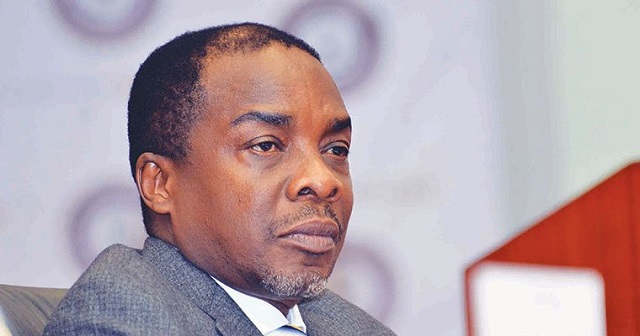
Kampala, Uganda | THE INDEPENDENT | Uganda could end up paying billions of Shillings to the Democratic Republic of Congo as compensation for occupation of its territories during the 1997 to 2003 war if the Hague based International Court of Justice (ICJ) decides to adopt compensation figures recommended by its experts.
Four ICJ-appointed experts have recommended that Uganda pays USD 215 million for infrastructure and property damage, general looting and specifically looting of minerals. The experts are Debarati Guha-Sapir, a Professor of Public Health at the University of Louvain (Belgium), Michael Nest, the Environmental Governance Advisor for the European Union’s Accountability Rule of Law and Anti-Corruption Programme in Ghana, Geoffrey Senogles, a Partner at Senogles & Co., a Chartered Accountants Firm in Switzerland, and Henrik Urda, a Research Professor and Director of the Peace Research Institute Oslo (Norway).
The damage compensation figures recommended by experts is classified as USD 15.9 million for infrastructure, USD 3.6 million for general looting, USD 24.8 million for property damage in Ituri and 16.6 million as property damage out of Ituri areas which were occupied by the Uganda Peoples Defence Forces-UPDF. Another USD 56.9 million is classified as property of National Electricity Company and USD 41.6 million was property of Congolese Army and 55.8 million is recommended as compensation for looting of minerals.
But what remains unclear is the compensation for human lives that were lost during the war. And this is going to be an item with the highest figure.
Guha-Sapir, who worked on the excess deaths report noted that DRC registered 4.9 million excess deaths from 1997 to 2003. And specifically in areas which were occupied by Uganda soldiers, she reported 185,136 excess deaths, while Dr Henrik Urdal who submitted about war deaths only estimated that 28,981 deaths were directly as result of the war. According to his report, 14,663 were civilian deaths, 6,494 military deaths while 7,824 were unknown.
Geoffrey Senogles, the ICJ accountant expert recommended USD 30,000 for each victim who died directly as resulted of the war and USD 15,000 for other deaths. It seems DRC seized these figures to claim USD 4.3 billion as compensation for human lives lost.
The experts report was released on Monday following Uganda’s withdrawal of objection to its release. At the start of court oral hearing on April 20, Uganda wrote objecting to making experts report public, but on 28th of April, Attorney William Byaruhanga who was in Hague withdrew the objection.
“I have the honour to further inform the court that Uganda hereby withdraws its objection and consent to the reports of the court appointed experts and related documents being made accessible to public,” Byaruhanga wrote.
During two weeks of oral proceedings, lawyers representing Uganda fervently urged the court to reject expert reports that derived from estimates and globally reputable databases. Instead, Ugandan lawyers argued that Congo must produce compelling evidence such as death certificates if it’s to be compensated.
Sean Murphy, a Professor of International Law at George Washington University, representing Uganda argued that DRC must produce evidence but also causation—showing that such deaths and destruction were as result of activities of Uganda soldiers.
“That assertion about the inability to gather evidence relating to war is demonstrably untrue. Iraq’s invasion and occupation of Kuwait did not prevent victims or their families from identifying to the UN compensation commission the names of those who died,” he said.
Countering Uganda, Phillipe Sande, a Professor of Law and Director of the Centre on International Courts and Tribunals at the University College London, representing Congo told the court that Uganda’s approach if accepted will “lead to a great miscarriage of justice.” Uganda’s approach, he argued is ridiculous, disrespectful and offensive.
Debarati Guha-Sapi also asked the court to ignore demands by Uganda that DRC must produce evidence like death certificates to prove that its citizens died when the UPDF was deployed in Ituri almost 23 years ago. She argued that institutions registering deaths were non-existent in Eastern DRC during the war and there were no incentives for people to obtain certificates for dead relatives. “I think it cannot go without saying that death certificates or civil registration is not going to be a source of any data.”
After end of oral arguments, both countries anxiously be waiting for court judgment which will be delivered on notice.
The ICJ reopened this case which Uganda lost to Congo after the two countries failed to agree on the compensation figure. When Uganda lost the case in 2005, DRC’s lawyers argued for a reparation figure of USD 10 billion which was awarded. However, the court asked the two parties to get together and come up with a figure that is agreeable to both because Uganda protested the claims.
At one point during negotiations, William Byaruhanga told ICJ that DRC was claiming USD 23 billion in compensation which it has now reduced to USD 13.5 billion as per Byaruhanga’s presentation.
*****
URN
 The Independent Uganda: You get the Truth we Pay the Price
The Independent Uganda: You get the Truth we Pay the Price



